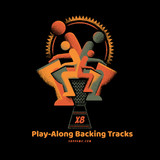What to Expect from A Drumming or Music Program in College
If you have been playing drums (or any instrument) for your entire life, or, you just discovered your passion for drums, immersing yourself in a drumming program in college could be your personal launching pad into greatness. There is a lot to be said for music education, either in the form of private lessons, or singing in a school choir, but for many, a few hours each week is not enough to satisfy the need to perform or express an inner rhythm.
Hopeful drumming students have a wide range of opportunities for higher education, either with an academic slant, or for music alone. Most music programs or schools fall into the following categories:
- Music preparatory schools: these can begin as early as inclusive music education in preschool through high school, or, have aspects of summer camp for older children. Many of these are attached to music conservatories that accept students after high school graduation.
- Music “magnet” schools: public schools are following the “Fame” model in many cases, offering specific music and arts programs for students in the district. Many of these public magnet schools require specific academic scores and auditions.
- Independent conservatories: these are higher education environments that focus primarily on the performance of music, rather than history, theory or music production.
- Music departments/colleges in universities: most universities have music departments where classes, lessons and other music-related electives are offered, including music education, music production, choral music, orchestras and marching bands.
- Conservatories in universities: for students who plan to focus on music performance within a university environment.
- Liberal arts colleges: general arts classes and programs are offered, including music, dance, visual arts and more.
- “College of Life” studies: no tuition payments, no papers to write, no recitals to perform, just you, your drum (or instrument) and the world as your teacher.
Deciding which way to pursue your love of music can be a challenge, even for the most talented drummer or musician. For a Bachelor of Arts in Music that focuses on percussion, the number of credits needed to obtain the degree is the same as in any other BA program. Within a music college, however, many times the schedule of needed electives can leave little room for electives outside of the program’s requirements. For example, a Bachelor of Music, Performance: String, Woodwind, Brass, Percussion from the University of Minnesota lists the following classes and credits in their 4-year program:
- Music Theory & Ear Training - 12 Credits
- Approved Theory Electives - 6 credits
- Music History - 12 Credits
- Keyboard & Conducting - 6 credits
- Applied Music/Studio Instruction - 32 credits over 8 semesters
- Ensembles (Band/Orchestra) - 8 credits over 8 semesters
- Recitals (Junior and Senior Year)
Those requirements are in addition to the credits needed for a Bachelor of Arts degree, including English, Science and Math. Plus, there is also the heavy amount of practice time needed for the drum or percussion instrument and recitals, in addition to homework and other projects in all classes.
But, is it worth the effort? Of course it is. Before you jump into a degree-based music program, ask yourself these questions:
- Do I want to perform music, or does the theory or history of music interest me more?
- What are my goals for my education after high school, aside from drumming or percussion?
- Where am I at in terms of competing against others in the band or orchestra?
- How will a degree in music help me achieve my goals?
- Who are my drumming heroes, and how did they become great?
- What is my overall style ofmusic when drumming, and, is there more I am interested in learning or do I just want to perfect my current style?
- Is teaching drums and percussion to others an option?
- How much can I afford to spend on a drumming or music program?
Of course, you can always just keep playing your drums anywhere and everywhere possible. Drumming and music programs are wonderful ways to explore the history and theory behind what drives your rhythm, and learn how to compose music and play your instrument like a professional. But, many drummers and musicians prefer to find their own path through the landscape of music, and that’s okay, too. Music and drumming cannot be entirely defined in books or lessons, it is an expression of experience and inner thoughts (or demons!) that is relatable through each beat of a drum, note on a scale and diminuendo of a song.
Recent Posts
-
X8 Drums Play-Along Backing Tracks
The new X8 Play-Along Series is being produced for our musician friends wanting a fresh way to work …9th Feb 2025 -
What is the Best Size Djembe for Beginners?
If you're new to the world of percussion and interested in learning the djembe, you're in for a t …16th Jul 2024 -
The Benefits of Becoming a Drumming Teacher: Transforming Passion into Profession
Why become a drumming teacher? Becoming a drumming teacher is an excellent way to share your pas …22nd May 2024



